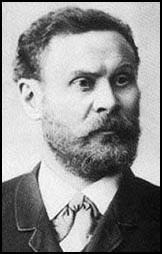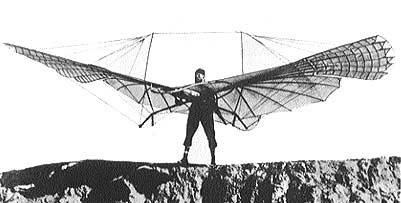Otto Lilienthal

Otto Lilienthal was born in Anklam on 23rd May, 1848. After studying mathematics and bird studies he trained as a mechanical engineering at the Royal Technical Academy in Berlin (1867-1870).
Lilienthal fought in the German-French War before finding employment at a mechanical engineering company in Berlin (1871-1880). Lilienthal joined the Aeronautical Society and began to give public lectures on the theory of flight.
In 1874 Lilienthal began building models of flying machines. He also worked in other fields and invented a machine used in mining and marketed Anker-Steinbaukasten (stone building blocks for children). In 1881 Lilienthal established his own mechanical engineering company building boilers and steam engines. A progressive employer, Lilienthal introduced a 25% profit sharing scheme for the workers in his company. He was also active in the development of Berlin's Volkstheater (People's Theatre).

Lilienthal published Bird Flight as a Basis for Aviation in 1889. In the book he argued that birds produce thrust by the action of their outer primary feathers. In 1893 he built a flapping wing machine driven by a motor. He also began building gliders. He successfully demonstrated the superiority of cambered wings over flat wings and achieved glides of more than a 1,000 feet (300 m). As a result of Lilienthal's experiments gliding became a popular sport in Germany.
Lilienthal's experiements had inspired the work carried out by Wilbur Wright, Orville Wright, Percy Pilcher, Ferdinand Ferber, Clement Adler, Louis Bleriot and Samuel Pierpont Langley.
Otto Lilienthal was killed on 10th August, 1896, while flying one of his gliders in Berlin.
